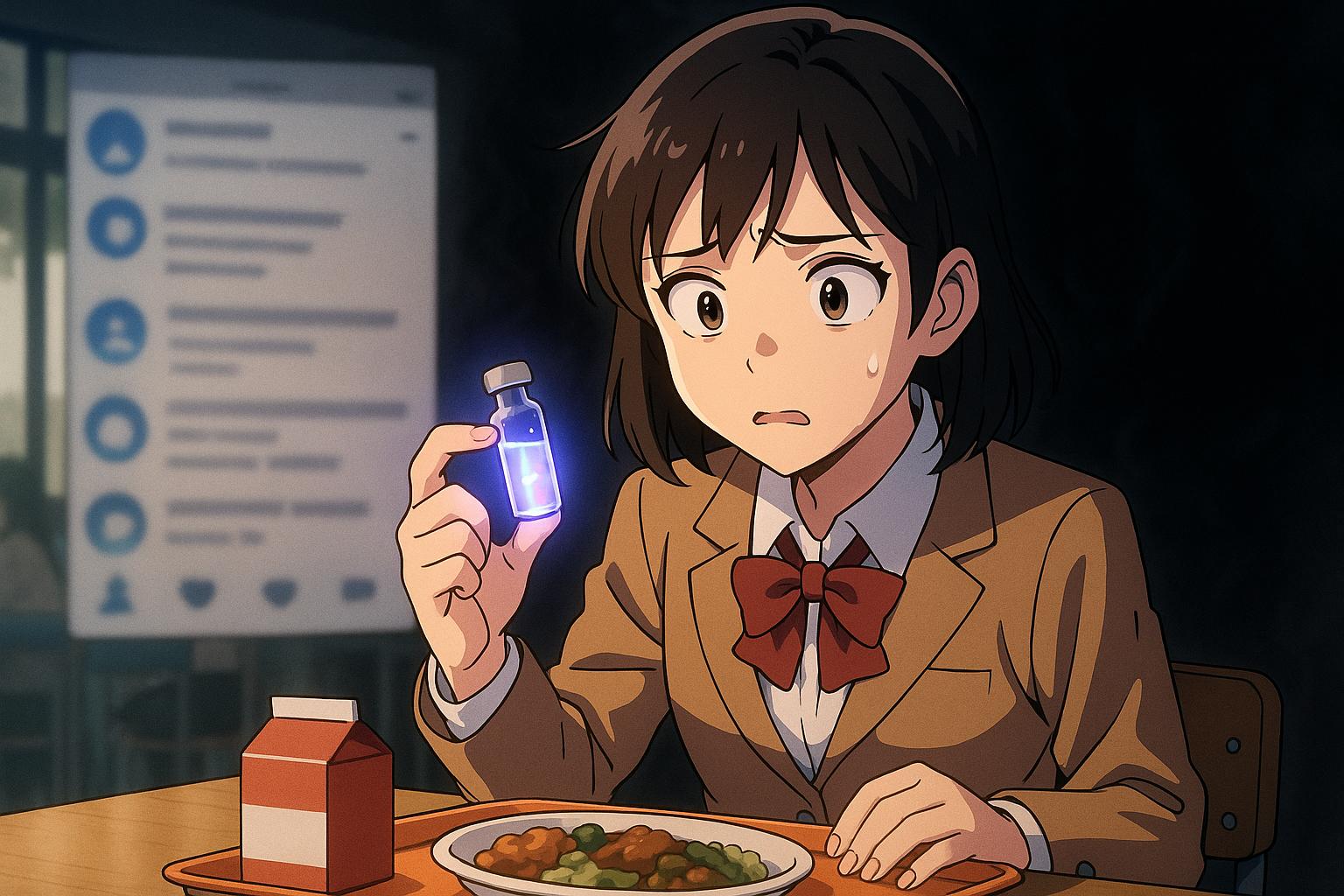Experts are sounding the alarm as ketamine, often referred to as 'K' or 'Special K', increasingly enters the lives of school children, particularly during lunch breaks. This troubling trend has led to it being perceived by some as a 'rite of passage', a notion that highlights a disturbing acceptance of drug use among younger generations.
Mark O'Hagan, headteacher of Sacred Heart Catholic Academy in Crosby, Liverpool, has voiced his concerns. He stated that awareness of ketamine has surged among students over the past several years. “Six or seven years ago, we didn't really know what ketamine was. Now, it's in the common language of the children and for lots of children they do, unfortunately, see this as almost like a rite of passage,” he explained during an interview. This cultural shift, he argues, normalises risky behaviours around drug use.
The implications of such usage are severe. As highlighted by Dr. Verity Sullivan, a sexual health consultant, the physical health ramifications—particularly urinary tract issues—are alarming. She noted that more pupils are experiencing painful urination and frequent bathroom visits, with some even reporting blood in their urine after regular ketamine use. With reported cases of urinary tract infections on the rise, the health risks continue to escalate.
Merseyside’s police and crime commissioner, Emily Spurrell, echoed these sentiments, urging for greater awareness among young people regarding the dangers associated with ketamine. She indicated that many are ignorant of the long-term health effects, which are becoming increasingly evident as more individuals report significant health issues stemming from their usage.
The surge in ketamine use among young Britons, particularly those aged 16 to 24—often referred to as 'Generation K'—is alarming. Recent data from the Office for National Statistics reveals a staggering 650% rise in deaths related to the drug since 2015, averaging nearly one death per week. Usage rates have not only soared; they have tripled among young adults since 2016. Figures show that 3.8% of individuals in this age group reported using ketamine last year, a considerable increase from previous years.
The accessibility of the drug plays a crucial role in its popularity among youth. Priced at around £10 per gram, ketamine is cheaper than other recreational drugs, making it an easily attainable option for many. Scott Ardley, a senior treatment advisor at Rehabs UK, noted that dealers frequently target young people online, with applications like Snapchat facilitating transactions through their disappearing message features.
Social media also significantly contributes to ketamine's rising profile. Platforms like TikTok have become hotspots for content that trivialises the effects of the drug, often showcasing users in altered states known as 'k-holes'. Ian Hamilton, an addiction expert at the University of York, remarked that these online trends not only promote ketamine use but also risk leading to tragic outcomes similar to challenges that have resulted in fatalities.
Compounding the issue, a significant increase in treatment requests for ketamine misuse has been observed. In the past year alone, over 3,600 individuals sought help for ketamine-related problems, a stark contrast to just 425 individuals in 2014. As early intervention becomes critical, it's evident that the societal ramifications of ketamine use are far-reaching and demand urgent attention.
As authorities work to combat this escalating crisis, there’s an urgent need for education around the severe consequences of ketamine consumption. The challenges faced by youths today, exacerbated by peer pressure and social media influences, underline the importance of responsibility on both a societal and individual level to mitigate the health risks associated with this increasingly popular drug.
Reference Map
- Paragraph 1, 3, 4, 6, 8
- Paragraph 2, 7
- Paragraph 2, 7
- Paragraph 2, 7
- Paragraph 6
- Paragraph 6
- Paragraph 6
Source: Noah Wire Services
